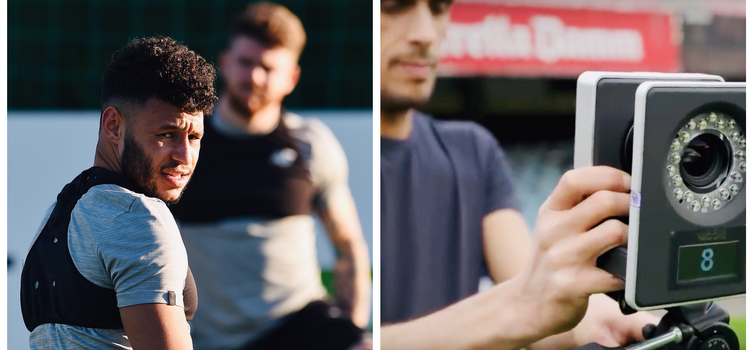Four tracking systems given quality certificates by Fifa

Written by Simon Austin — December 21, 2019
FIFA has awarded “quality certification” to four Electronic Performance Tracking Systems (EPTS) after carrying out the “largest validity study of its kind”.
Catapult’s Clearsky, ChyronHego’s TRACAB Gen5, Fitogether’s OhCoach Cell B and STATSports’ Apex were the products awarded certification.
The main testing was carried out over a four-day period (20, 21, 22 & 23rd November 2018) at Barcelona FC’s Mini Estadi by a research team from Victoria University, supported by the Barcelona Innovation Hub. Phase one testing had been conducted in Melbourne’s Marvel Stadium.
The systems were all compared against Vicon - “known globally as the gold standard for measuring objects or people in space”.
Ten players were monitored through “specific football movement and small-sided games” to give positional and velocity data. Most of the tests took place within an area measuring 25m x 25m, although a series of five “maximal sprints” took place over a longer distance of 40m.
The EPTS Quality Project began in 2015, when Fifa first consulted key football stakeholders in the game about it, and has been led by Professor Robert Aughey from Victoria University in Australia.
Last year, Aughey explained: “We are trying to establish how accurate athlete tracking systems are. Do they actually track the movement of athletes on the football pitch?
“It is the first time that a project like this has been done on this scale. There is always a question of how accurate they (the EPTS systems) are and it is not always known how accurate they are under true match conditions.
“A lot of the time, work is done in a controlled laboratory environment and then we assume that carries into match-like scenarios.
“In this project, we started within match scenarios in a stadium, where we can actually determine how accurate these systems are under the conditions they will be used in.”
TEST RESULTS
Fifa’s testing sought to validate accuracy for measuring velocity and player position in five speed ranges: 0-7km/h, 7-15km/h, 15-20km/h, 20-25km/h, 25km/h+.
With elite football increasingly a game of repeated high-intensity sprinting, the recordings are important throughout the speed bands. It is worth noting that several prominent companies did not take part in the quality performance testing, which validated four systems:
ChyronHego’s TRACAB: an optical tracking system that used 16 cameras for the purposes of the test. This performed best of all, with results ‘well above’ the designated standard in all four categories up to 25km/h.
This summer, the American company lost the contract to provide Premier League ball and tracking data - which it had held since 2013 - to Second Spectrum.

Catapult’s Clearsky: a local positioning system using 24 fixed receivers and ultra wideband technology. ‘Well above’ at 0-7km/h and 15-20km/h, and ‘above’ at 7-15km/h. However, the Australian company’s GPS systems, which use satellites to gather data, have not yet been awarded certification.

Two GPS systems did pass the validation tests: Korea’s Fitogether OhCoach Cell B and STATSports Apex.
Fitogether OhCoach Cell B, which is used exclusively in the K-League and by Liverpool’s International Academy in Korea, was ‘well above’ at 0-7km/h, ‘standard’ at 7-15km/h and 15-20km/h and ‘above’ at 20-25km/h. The system had use of 12 to 16 satellites for the purposes of the test.

STATSports Apex, using 12 to 14 satellites, was 'well above' at 0-7km/h and 'standard' at 7-15km/h and 15-20km/h.

Fifa said the EPTS quality programme would be “iteratively improved and developed, based on data-driven decisions”. World football’s governing body added that the “final goal” of the programme was to create a “professional standard” for Electronic Performance Tracking Systems.
Dave Carolan, the former Head of Performance at Stoke City, told TGG: "Depending on your budget, there is a real choice of electronic tracking systems available, be it optical tracking, local positioning or GPS.
"That choice - and the accuracy of the systems - is only going to increase over the next five years."





-1.png)





